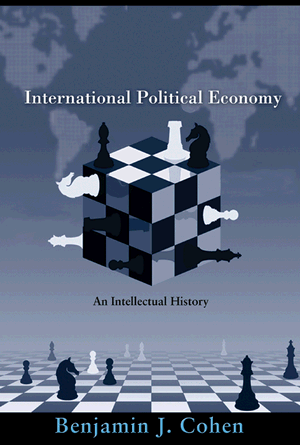Introduction to International Political Economy
Post on: 16 Март, 2015 No Comment

google+
The world of today is a complex mix of the issues of lopsided growth with the rich getting richer and the poor poorer and the many topics from the possibility of a nuclear arms race to suffrage rights being granted to women in the Middle Eastern countries.
International Political Economy or IPE can be defined as a marriage between International Relations and Political Economy. This branch of study can be especially useful to academicians and students alike who can gain a deeper understanding of how economics, politics, government policies and global issues such as flow of Foreign Direct Investment (FDI) from the developed to the developing countries are getting more closely related in this era of globalization and an increasingly interconnected world.
While ‘political economy’ was more concerned about the study of the relations of production in the countries born out of the new capitalist order and was later replicated by ‘economics’ as a branch of social science dealing with the functioning of the economy mainly using axiomatic techniques and fundamental mathematical tools, IPE can be defined as the politics of the emerging global economy. It encompasses all the issues pertinent to the human race like North-South relations emerging out of globalization and liberalization. An introduction to IPE can be characterized by understanding of the present world taken as a single entity where every action undertaken even in a remote corner of the globe can have corresponding or greater reactions elsewhere. We are not talking about movements of tectonic plates here! For example, fluctuations in the world price of Kenyan tea can have huge repercussions in the Sri Lankan economy where most of the domestic tea consumed is imported from East African markets. This can even effect prices of sugar somewhat, tea and sugar being complementary to each other. The study of the rapid increase in global oil prices from the first oil price increase in 1973 by the Organization of Petroleum Exporting Countries to touching almost US $ 70 a barrel in 2006 mainly due to the Iraq War can also be explained by IPE dealing with socio-economic issues behind such increases.

Issues of trade liberalization and globalization which are motivated by economic and political considerations can also be addressed by IPE. Mutual Trade Agreements and signing of Free Trade Agreements such as the SAFTA (South Asian Free Trade Agreement) and NAFTA (North American Free Trade Agreement) have resulted in industrial lobby groups raising its head in the countries concerned. Free trade has caused massive dumping of second grade computers and automobiles in the third world economies by the richer nations. This has in a way accentuated the poverty levels present in these economies.
Introduction to International Political Economy will also a wide range of topics from the environmental issues of global warming, climate change which will cause animals such as polar bears and seals to become extinct at the turn of the next century. Over whaling of world oceans is another burning issue in todays contemporary world.
But the cornerstone of theory of IPE is the cooperation and political will in fighting out global concerns such as energy security and the shift to alternative sources of energy to addressing race and gender inequality prevalent in many of the developing economies. The structural bottlenecks of Africa such as poor infrastructure and bad and corrupt government polity are preventing the common people to have the fruits of development international developmental and structural adjustment programmes carried out by world bodies like United Nations and the International Monetary Fund are failing to make any headway in these countries. Globalization of financial markets and heavy FDI flow across the world also need to be assessed according to the terms of IPE.
Globalization has brought issues such as currency crisis like the East Asian and the Argentine problem and the concomitant exchange rate and balance of payments measures to tackle the menace to the forefront which can be addressed and redressed by the theories of the IPE. We need to take a lesson from the micro-credit scheme launched by Dr. Muhammad Yunus if we are to ameliorate the lots of the poor around the world by making them more self-dependent.














